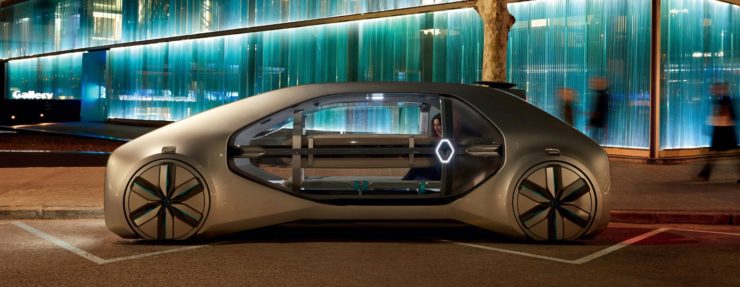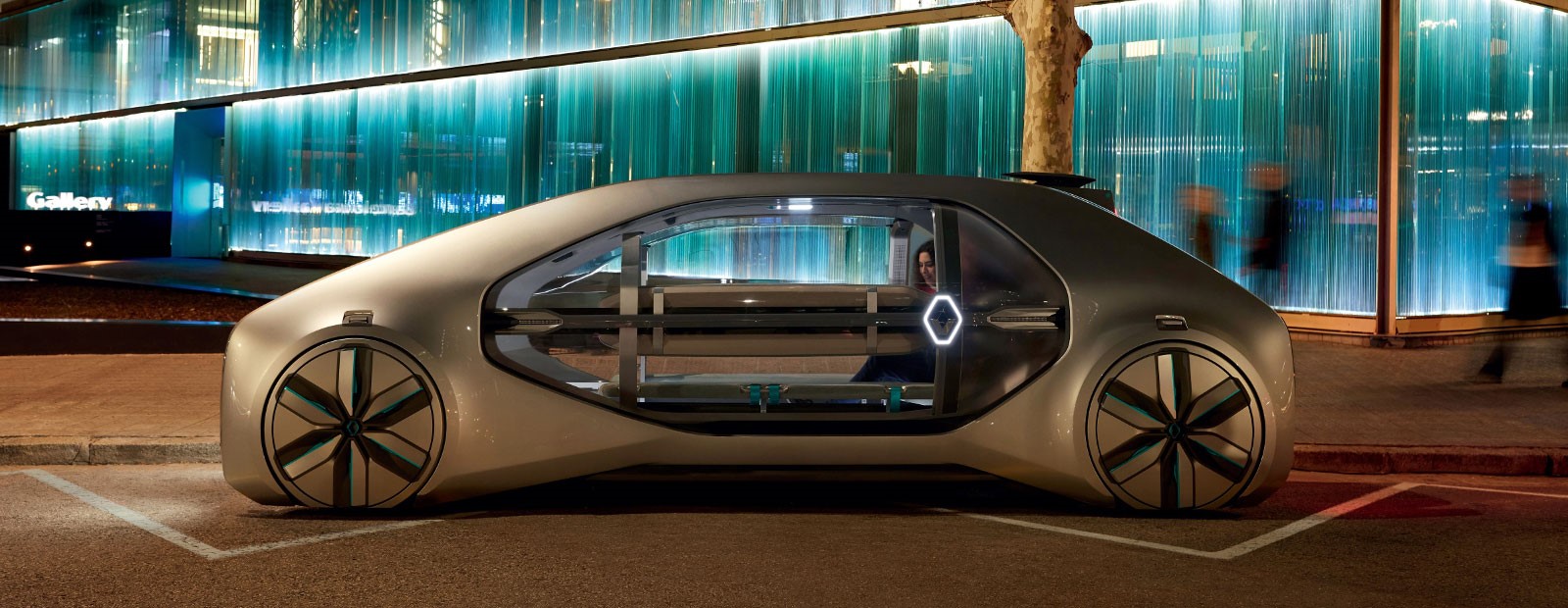[urban interfaces] Blogs
Sociotechnical Imaginaries on The Futures of Urban Mobility
Written by Mavi Irmak Karademirler
Dutch Design Week takes place every year in Eindhoven. In October 2019, the Design Week was organized around an urgent slogan: “If not now, then when?” The Design Week features design processes and design explorations which work with different materials, methods and techniques with a focus on future-oriented design projects. The event is spread across various spots within the city of Eindhoven, and it is possible to witness various works concerning different fields of design, from textile and fashion to new materials and craft, everyday objects to architecture and urban futures. For example, taking the “Future Living Route,” visitors can see works of artists, designers, and the work of students in social and sustainable design and their interpretations on the futures of urban living with a focus on issues such as mobility. In this regard, a part of the exhibition showcases a design of “mobility of the future,” represented by the French automobile brand Renault. At first sight “the car of the future,” looks like out from a sci-fi movie poster, meets with visitors’ curious glances. “The mobility of the future” represents a technical imaginary for future scenarios of transportation and mobility, reflects imaginary ways of living for the future urban citizens. Renault, presents their concept cars with a vision of a fully electronic, shared, autonomous future mobility. These transformations in mobility trends are linked to the visions concerning the futures of mobility in urban space and can be seen as part of socio-technical imaginaries drawing on Shelia Jasanoff’s definition of “collectively held, publicly performed visions of desirable futures, animated by shared understandings of forms of social life, and social order attainable through, and supportive of, advances in science and technology” (Jasanoff 2015, 19). According to Jasanoff, socio-technical imaginaries do not only carry what is attainable through science and technology but also express society’s shared visions; understandings of good and evil (Jasanoff 2015, 4). In regard to Renault’s concept cars, the company’s approach to the design of the cars draws on a collective vision of a desirable sociotechnical future of mobility with building the design around the related critical contemporary questions, concerns of efficiency, sustainability, affordability.
Sociotechnical imaginaries have an important role in the design process, in ideation and development of a concept (Jewitt et al. 2020). The concept of imaginaries is used by designers and engineers to explore the visions and various practices of people which are often influenced by the imaginaries appear in media, pop culture, by alternate realities of science fiction. We see an instance of such an influence on company’s webpage, where the visions behind future mobility project are elaborated in relation to the storylines of famous sci-fi movies such as Blade Runner, The Fifth Element, and Back to the Future (Group Renault, 2019).

Concept Car Renault EZ-GO presented in Dutch Design Week Eindhoven 2019
The design of the concept car EZ-GO aims to build a connection with the city infrastructure by making use of the sensors, data analytics, multimodal systems, and connected services, compatible with the smart cities of the future. These goals to some extent demonstrate that the company’s narratives regarding futures of mobility are set in line with the socio-technical imaginaries of the smart city; the ideas, narratives, practices that are associated with the ‘smart’ future in-the-making (Sadowski and Bendor 2019, 6). Such instances of corporate projects show that the sociotechnical imaginaries are articulated, performed and used by various organized groups, institutions, businesses with the involvement of other actors, advertising companies, workers, and users. Companies such as Renault found research and development departments to develop innovative strategies and gain competitive advantage over their opponents within the market. Stimulating, engaging with sociotechnical imaginaries in the research process is considered as a part of inducing new areas for innovation for future products and services (Hooge and Le Du 2014, 5-8). Targeting the critical issues around mobility (sustainable design, connectedness) and promoting ‘new’ company visions on mobility through presentation of corporate projects can be considered as part of this process.
Jasanoff (2015) asserts that performance, as a social practice, should have a big part in theorizing the imaginaries, and that “theatricality has been part of the machinery of statecraft and rulership from the earliest of times” (9). Jasanoff discusses the role of performance and theatricality in regards to creation of sociotechnical imaginaries through the employment of scientific and technologic instruments. The settings in which the concept cars – presenting the imaginaries on the ‘future of mobility’ – appear in front of the public eye in the Dutch Design Week, as part of a theatrical scenery, exemplifies this claim. Furthermore, it shows us that it is not only the nation-states who engage with such theatrical constitutions of modern social imaginaries.
References
Group Renault. 2019. “Autonomous Shared Mobility: From Fiction to Reality.” May 16, 2020. https://group.renault.com/en/news-on-air/news/autonomous-shared-mobility-from-fiction-to-reality/.
Group Renault. n.d. “Renault Concept Cars.” https://www.renault.nl/ontwerp.html.
Hooge S., and L. Le Du. 2014. “Stimulating Industrial Ecosystems with Sociotechnical Imaginaries: The case of Renault Innovation Community.” EURAM, Valencia, Spain.
Jasanoff, Sheila. 2015. “Future Imperfect: Science, Technology, and the Imaginations of Modernity.”. In Dreamscapes of Modernity: Sociotechnical Imaginaries and the Fabrication of Power, edited by Sheila Jasanoff and Sang-Hyun Kim, 1-33. Chicago, IL: University of Chicago Press.
Jewitt, C., S. Price, L.K. Mackley, N. Yiannoutsou, and D. Atkinson. 2020. “Sociotechnical Imaginaries of Digital Touch.” In Interdisciplinary Insights for Digital Touch Communication. Human–Computer Interaction Series. Springer.
Sadowski, Jathan, and Roy Bendor. 2019. “Selling Smartness: Corporate Narratives and the Smart City as a Sociotechnical Imaginary.” Science, Technology & Human Values 44, no. 3: 540-63. https://doi.org/10.1177/0162243918806061.
This article is part of the graduate seminar series Urban Ecologies 2020.

